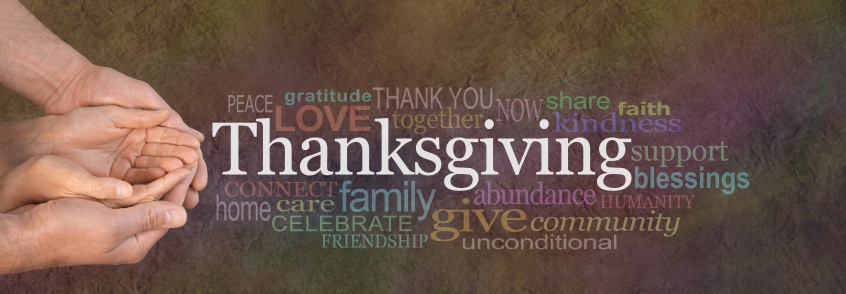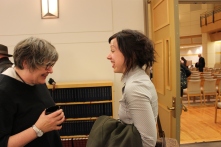
Note: This is a 3-part series of the essay Quid Est Veritas: On Truth and Moral Relativism.
Part III: Cultural Relativism
Many people come to affirm moral relativism because there is so much moral disagreement, both within a culture and across cultures. These people think that the fact that there is no agreement is a sign that there is nothing to agree about, no objective truth that cuts across cultures.
This disagreement isn’t recent either. Certainly the Jews and the Romans profoundly disagreed about how to live, about what was OK to do and say and what wasn’t. The ancient historian Herodotus, who was writing in mid fifth century BC, relates the following anecdote of the King of Persia:
He summoned the Greeks who happened to be present at his court, and asked them what they would take to eat the dead bodies of their fathers. They replied that they would not do it for any money in the world. Later, in the presence of the Greeks, and through an interpreter, so that they could understand what was said, he asked some Indians…who do in fact eat their parents’ dead bodies, what they would take to burn them. They uttered a cry of horror and forbade him to mention such a dreadful thing (Herodotus 440BCE; trans. Sélincourt, 1988, pp. 219- 20).
Insofar as we take Herodotus to be putting forth a view here, it would be what we now call cultural relativism. This is a species of moral relativism insofar as it says that morality is relative to cultures, and it is shared cultural beliefs and practices that determine what is morally true for the people who are born into it. So, what is morally true for an aboriginal tribe in what is now called Australia is true for them but not true for we Americans, and vice versa.
Cultural relativism is a species of moral relativism. A cultural relativist believes that morality is relative to cultures, and that it is shared cultural beliefs and practices that determine what is morally acceptable and mandatory for the people who are brought up under them and for no one else.
A version of cultural relativism was put forward in 1947 by the American Anthropological Association, in response to the UN Declaration of the Universal Rights of Man. The AAA was against such a universal declaration on explicitly relativist grounds. They argued that moral belief and practice is entirely determined by culture and that there is no way to legitimately demonstrate that the values or customs of one culture are superior to any other. They further chastised western political institutions for imposing their own culturally situated ideology of “universal rights” upon other nations. In their statement on human rights, the anthropologists asked:
How can the proposed declaration be applicable to all human beings, and not be a statement of rights conceived only in terms of the values prevalent in the countries of Western Europe and America?[i]
Their worry was that the declaration of universal human rights was just colonialism masquerading as liberation. Unmask this, and all we are left with is the ideology of the “white man’s burden” all over again. So, instead of declaring a regime of universal rights that all cultures had to respect, the anthropologists argued for “respect for differences between cultures” which is “validated by the scientific fact that no technique of qualitatively evaluating cultures has been discovered.” (1947, 542) The anthropologists also claimed explicitly that:
Standards and values are relative to the culture from which they derive so that any attempt to formulate postulates that grow out of the beliefs or moral codes of one culture must to that extent detract from the applicability of any declaration of human rights to mankind as a whole. (Ibid)
The first thing to say about this fascinating document is that its appeal to science does no argumentative work. For just as there is no “scientific” method to “qualitatively evaluate” moral beliefs, there is also no “scientific” method to determine that qualitative measures are the only legitimate standards of knowledge. To say that science hasn’t yielded an adequate moral theory is just to state the obvious and pretend that something substantive follows from it. But we cannot infer from the fact that science doesn’t yield moral knowledge the conclusion that there can in principle be no moral knowledge, as moral knowledge may simply not be scientific in character.
Setting debates about what moral knowledge is aside, notice that here we have the familiar refrain to “respect diversity” rather than interfere and impose, because moral standards are relative to cultures, and that failure to recognize this belies a crude parochialism. This position doesn’t have to assume, by the way, that other cultures have to respect diversity as well, so it needn’t be self-defeating in the ways we have previously discussed. [There is a complication here, however, about a so-called “right of men to live in terms of their own traditions” casually asserted in the document, but let’s be charitable and pretend it isn’t there]. The statement just says that within our western culture we should respect diversity and be tolerant of cultures dramatically different from our own. This may mean, by the way, that women continue to be treated as inferiors to men and denied political rights, education, and any semblance of control over what happens to their bodies, that homosexuals may be executed, that honor killings may continue, or any other number of things that look like moral atrocities from our contemporary western point of view. The consistent cultural relativist will, on these matters, have to live and let live.
We can further complicate this issue. In her wonderful essay, “Trying Out One’s New Sword,” Mary Midgley describes the following custom of Samurai warriors in Medieval Japan:
There is, it seems, a verb in classical Japanese which means ‘to try out one’s new sword on a chance wayfarer.’ (The word is tsujigiri, literally ‘crossroads-cut’). A Samurai sword had to be tried out because, if it was to work properly, it had to slice through someone at a single blow, from the shoulder to the opposite flank. Otherwise, the warrior bungled his stroke. This could injure his honor, offend his ancestors, and even let down his emperor. So tests were needed, and wayfarers had to be expended. Any wayfarer would do.”[ii]
What interests me so much about this example is that it brings up yet another iteration of cultural relativism, what Bernard Williams has called “the relativism of distance.”[iii] Williams is deeply skeptical that one can judge any culture when there is significant historical distance between the judger and the time period judged. Williams thinks that moral beliefs are radically contingent, such that it would be a mistake to assume the authority to judge those who came before us. According to Williams, judging the past is basically an empty, self-congratulatory exercise; it is patting oneself on the back for having the good fortune to be born in more enlightened times. More specifically, Williams argues that appraisal of the past does not satisfy two conditions for genuine moral judgment: (1) shared interests and projects in common, and (2) a practical question of what to do.
What can we say to Williams or to our benighted anthropologists? Is it true that we should refrain from judging cultures? This is a difficult question, to be sure, because we should be wary of the dangers inherent to judging others—they are real. But one thing seems certain to me, and that is that adopting cultural relativism doesn’t solve the problem of our relationship to the past and to other cultures, but arguably just makes that relationship more strained and insincere.
For one thing, as Mary Midgley herself pointed out, if we adopt relativism in either sense, it makes learning from other cultures and time periods very difficult (if not impossible). For if we cannot censure another culture we also cannot praise it (for that too, would be to make a moral judgment about it, which I have blocked myself from doing). In order to enter into genuine dialogue and exchange with another culture or time period, we have to be able to identify what we find good and what we find bad in it—otherwise we are entirely closed off to it. If we cannot enter into this conversation, which depends on moral judgment, then we have no hope of converging on a shared worldview and we have no hope of genuine cultural exchange. A dialogue can only take place from where we are, a place of real commitments to specific values. Insofar as relativism asks us to give up our commitments, it asks us to be isolated and closed off from other cultures and time periods. It encourages us to see the other culture as radically other, thus blocking any genuine attempts to seek common ground and a common identity. This tends to drain the value out of historical and cross-cultural engagement, which can have dangerous political implications.
I want now finally to return to our opening remarks about the dictatorship of relativism. I want to suggest that there is something totalitarian about relativism after all.
When all truth is relative, which really means when there is no intelligible notion of truth at all, the rational discourse that is a necessary condition for a viable democracy becomes impossible. As rational animals, we cannot escape the fact that we have to form beliefs and make choices that are informed by them, and we cannot escape the fact that some of these beliefs are going to inform our most basic social institutions. Some values of necessity must prevail over others. If we refuse to acknowledge any objective measures of truth that are publicly accessible and in principle available to anyone, then all we have left to determine which beliefs and values determine social life is individual or collective will to power (whether this be the will of the oppressor class to maintain its status, or the will of the oppressed classes to gain power, is of no matter). In such social conditions, the clever and ruthless will prevail, and in absence of the power to persuade people to follow them, they will have to resort to violence to ensure that their private vision prevails over its competitors.
So freedom and equality really do depend on truth, they really do depend on some publicly accessible measure to which those in power can be held to account. And so we were wrong to think that relativism is a friend to democracy and equality. Quite the contrary, it is its enemy. For truth helps us to transcend ourselves; without truth, we inevitably collapse into ourselves, into our own private needs and desires. In that condition, we will either dominate or be dominated; either way, we will not be truly free.
[i] “Statement on Human Rights” American Anthropologist, Vol. 49, No. 4, part 1 (Oct-Dec, 1947), pp. 539-543.
[ii] Mary Midgley, “Trying Out One’s New Sword,” Heart and Mind, St. Martin’s Press, 1981.
[iii] Bernard Williams, Ethics and the Limits of Philosophy, Routledge, 2011.












